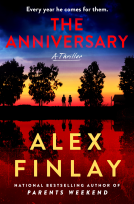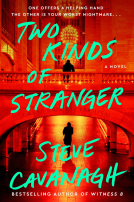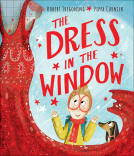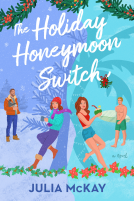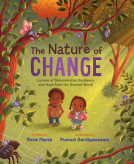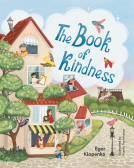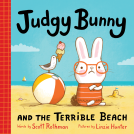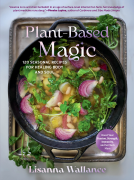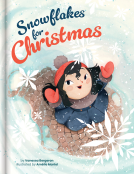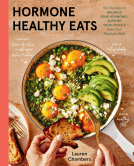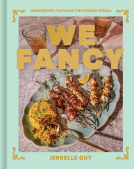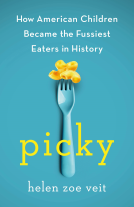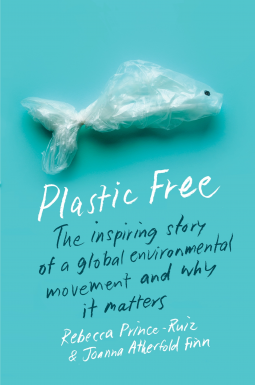
Plastic Free
The Inspiring Story of a Global Environmental Movement and Why It Matters
by Rebecca Prince-Ruiz; Joanna Atherfold Finn
This title was previously available on NetGalley and is now archived.
Send NetGalley books directly to your Kindle or Kindle app
1
To read on a Kindle or Kindle app, please add kindle@netgalley.com as an approved email address to receive files in your Amazon account. Click here for step-by-step instructions.
2
Also find your Kindle email address within your Amazon account, and enter it here.
Pub Date Dec 08 2020 | Archive Date Mar 17 2021
Talking about this book? Use #PlasticFree #NetGalley. More hashtag tips!
Description
This book explores how one of the world’s leading environmental campaigns took off and shares lessons from its success. From narrating marine-debris research expeditions to tracking what actually happens to our waste to sharing insights from behavioral research, it speaks to the massive scale of the plastic waste problem and how we can tackle it together. Interweaving interviews from participants, activists, and experts, Plastic Free tells the inspiring story of how ordinary people have created change in their homes, communities, workplaces, schools, businesses, and beyond.
It is easy to feel overwhelmed in the face of global environmental problems and wonder what difference our own actions could possibly make. Plastic Free offers hope for the future through the stories of those who have taken on what looked like an insurmountable challenge and succeeded in innovative and practical ways, one step—and one piece of plastic—at a time.
Advance Praise
"Plastic Free shows how one person’s actions can ripple out and cause good around the globe. Never has there been a more important time to share hope and action and combine them for our Mother Earth. "
--Melissa Joan Hart, actress
"Plastic Free July inspires me to step up my commitment to reducing single-use plastic in my daily life and on tour. "
--Jack Johnson, musician and Plastic Free Foundation ambassador
"Plastic Free shows us how to organize around our innate desire for a beautiful, clean environment and eventually change, in a fundamental way, the system that unnecessarily creates the ugly mess. "
--Captain Charles Moore, veteran seafarer and author of Plastic Ocean
"Some people feel overwhelmed by the environmental state of affairs and wait for politicians or manufacturers to change; others, like Rebecca Prince-Ruiz, take matters into their own hands, starting with their own lives. This is the success story of a global movement. It proves that change is in consumers’ hands, that individual action has more power than ever. Use this book to be inspired, or, better, use it as a template to change the world in your own way! "
--Bea Johnson, author of Zero Waste Home: The Ultimate Guide to Simplifying Your Life by Reducing Your Waste
"The more time I spend at sea, the more I realize that the solutions start on land. This book will guide you on that journey to making global change for the ocean from your doorstep. "
--Emily Penn, ocean advocate, skipper, and cofounder of eXXpedition
"Not just an inspiring story and a practical resource, this is evidence that grassroots actions by ordinary individuals and communities can make a material difference to the most wicked of environmental and social problems. Hats off. "
--Tim Winton, author
"Few people have spent as much time as Rebecca Prince-Ruiz trying to work out how to minimize the plastic in our lives. "
--Craig Reucassel, comedian and presenter of War on Waste
Available Editions
| EDITION | Other Format |
| ISBN | 9780231198622 |
| PRICE | $130.00 (USD) |
Average rating from 18 members
Featured Reviews
Strong Start, Your Mileage May Vary On Ending. I gotta admit, as an American I'd never heard of Plastic Free July before seeing this book on NetGalley. (And yes, since I am writing this review on July 21, 2020 - the day after it hit NetGalley - and it doesn't publish until December 8, 2020, this is certainly an Advance Review Copy, with all of the things that generally entails.) But the description of how Prince-Ruiz started the organization sounded promising. And the text of the book, for the first half - two thirds or so, showed exactly that promise. Someone deciding independently to choose to do something that could make a difference and work to convince her friends and family to do the same... in the age of social media. The back part of the book, where the organization shifts from voluntary action to political action - which is ultimately *always* at the point of a sword (in Ye Olden Times) or gun (in the modern era) - is more problematic and is where the book will likely be seen as much more divisive. I try to keep my own politics out of my reviews to as much a degree as possible, so I'll simply note that through this section the voluntary actions the author describes are commendable, and I've actually supported a few of them myself, but the less-than-voluntary actions... any time politics gets involved, you invite problems. Ultimately a great look at various things we all can and arguably should do, marred by its descent into politics. Recommended.
This was one of the much better books on the topic of plastic being bad for the environment. The author talks about her childhood and how she became interested in being an environmentalist and someone who cares about the future of the planet. Some of her personal stories are a lot more interesting and why she wants to get other people to become just as passionate as her without sounding like a lunatic. There was actually some humor despite the subject matter, but it was definitely a thought provoking read. I definitely have tried to use less plastic products or reuse them as much as I can, but what then :-(
A better book on this topic and a must if you are into climate change and saving the environment.
Thanks to Netgalley, Rebecca Prince Ruiz and Columbia University Press for an ARC in exchange for an honest review.
Available: 12/8/20
I realllllly loved this. Definitely want to pick up the physical copy to add to my own personal library. This book provides an introduction to basic environmentalist concepts (the effects of ocean debris) and as the author recounts her own personal story and her hand in the IG-famous movement, there are lovely little tips for those looking to lessen their reliance on plastics. Easy tips include: replacing single-use plastic bags and straws (save the turtles!). Though none of the advice is particularly groundbreaking, the tone with which Prince-Ruiz write is motivating and as she gently encourages her readers to makes changes.
 Educator 646363
Educator 646363
Thank you to Net Galley for providing an advanced reader’s copy in exchange for an honest review. I was glad to find that this book chronicled a plastic free challenge that began with a small group of people in Australia in 2011 and became a worldwide movement. The practical ideas, resources, and links given are helpful for people interested in reducing their plastic use. I also liked that there wasn't a preachy tone that could guilt people over what they haven't done to help the environment in this way.
The author detailed how she became interested in helping the environment. I was so inspired by this book, as it really is a great example of how one person can make a huge impact. The challenge to go plastic free for one month started as a small group of people in Perth, but is now a 250 plus MILLION strong community that spans across 177 countries. I am just amazed at the success of this movement and of how many people have embraced it and are being more conscious about using single-use plastics.
 Brian B, Reviewer
Brian B, Reviewer
PLASTIC FREE
“Plastic Free July” is a grassroots environmental campaign to get people to become more conscious about waste generally and cut down on plastic pollution more specifically. It started in Australia in 2011, and while there is no single methodology by which it is observed the basic premise revolves around getting participants to go “plastic free” to the best of their ability for the entire month of July. Now on its tenth year, Plastic Free July has become “a social phenomenon involving 250 million people in 177 countries.”
Honestly? I’d never heard of it—or at the very least it didn’t ring any bells—until I read Plastic Free: The Inspiring Story of a Global Environmental Movement and Why It Matters. To me, this goes to show that we can’t take for granted that some people may not even be aware of even the most inclusive people’s initiatives regardless of how popular.
On that score, Plastic Free is a comprehensive chronicle of how “Plastic Free July” came to be. From the telling, it’s no wonder the movement easily gained traction. To start, its point of departure is an issue about which many share a concern (the environment) that is then broken down to a single impactful cause (reduce single-use plastic consumption). Its call to action has a low barrier to participation: try going plastic-free just for the month of July. Most importantly, the campaign tries to meet its advocates where they already are, in the sense that there are no blanket standards it seeks to impose on participants other than that they do the best they can given their individual contexts.
All these are with the end in view that changing behavior is hard but that small changes can have a huge impact, whether in aggregate or over the long term.
Much of Plastic Free is dedicated to lessons learned over the course of getting the movement to grow and of strategies that have proven to be successful at sounding the alarm about the harm that single-use plastics pose to our environment. For my part, it was learning through the book that only 9 percent of all plastics ever produced have ever been recycled—and that only 0.9 percent are ever recycled more than once—that now has me mindful of the single-use plastics I consume. This is something about which I will certainly be more conscious for far longer than just one month of the year.
Being a Biochemistry Major with a Minor in Environmental sciences, this book is absolutely amazing. Telling the story of Plastic Free July, this book follows this amazing movement from conception to 10 years down the road. This movement over time has gained immense support and has even changed the laws concerning one use plastics in certain countries, and has certainly put plastics and their use and environmental impact on everyones minds. This book is great for describing and understanding the problem of plastic pollution, and gives many useful and helpful hints at converting your own lifestyle to a more plastic free living.
The one gripe I have with this book, would have to be the E-book formatting. The reading became quite chaotic due to the formatting of the ebook. There were more times than I can count on one hand, that a sentence in the middle of a paragraph was interrupted by a quote, or an essay about a particular subject. Then after the quote or essay, the paragraph resumes like nothing happen. This happens frequently throughout the book. Typically this would really annoy me and it did a few times, but since the overall message of the book is important to me, I trudge through.
Other than that, this book is amazing and a great idea creator if you are considering going plastic free or reducing your plastic pollution!
Rebecca Prince-Ruiz wrote a book chronicling the efforts of herself and others as they encouraged a plastic-free lifestyle. Aptly titled Plastic Free, she tells her story from AHA moment to a yearly movement.
What makes this book different from other eco-living books is that she doesn’t offer out tips on how to make the changes. Instead, she just tells her story of the personal changes that she made. She tells the story of working with others to make bigger impact changes. And she repeatedly reminds readers that every little bit that each one of us does is important and helpful to the healing of our planet.
She also goes beyond the litter aspect of single-use plastics and talks about why plastics, in general, are a pollution problem. The fossil fuels used to create plastics are killing the planet in numerous ways. Since the mass production of plastics and the utilization of convenience one-use plastic items, the health of our planet has been deteriorating.
Plastic Free by Rebecca Prince-Ruiz and Joanna Atherfold Finn is one of the better books about living plastic free / zero waste.
 Fianna M, Educator
Fianna M, Educator
Thank you to Netgalley, the publisher and authors for providing me with an ARC in exchange for an honest review.
I love this book. The authors look at the amount of plastic Americans use and throw away on a daily basis and discuss how to cut down on that amount. The talk about the initiatives that have been started for plastic free homes and don't shy away from talking about the mistakes they made along the way. One of the best parts of the book is that they share tips and tricks for reducing your plastic footprint on the planet.
 Anjana D, Reviewer
Anjana D, Reviewer
I read quite a few zero waste books and Plastic-related ones as well since I first got clued in to the reality of the issues around us. It is surprising how blind I was to my own footprint a few years ago! I made a significant stride forward as long as I lived in HK with native food growing quite close by and Indian spices being delivered in paper bags since HK is a central trading hub, and I was spoilt for choice. I am trying to get back to a semblance of that life, although it's hard where I am now. I was lucky enough to have a bulk store opening in the city just the year before moving! When I saw this written by women in Australia, I thought it might help me.
It did more than that, it reenergized my feelings towards the moment, and I am consciously thinking of what I can do next. It is the most comprehensive book with ideas and moments that I have picked up. It is for the layperson to help jostle one down the path of making even the tiniest bit of difference towards their plastic consumptions. We have individual comments littering the chapters, which further help provide practical anecdotes to solidify the ideology. It is not preachy; it gives suggestions for baby steps, which will appeal to even the most reluctant participants.
The book even addressed the start of the pandemic and how it might impact the reduction of single-use plastics achieved by everyday people! It was an energetic book covering a lot of ground and I would highly recommend it to anyone who wants to start thinking about the single-use plastics in their house.
I received an ARC thanks to NetGalley and the publishers; the review is entirely based on my own reading experience and my previous attempts at looking at my own plastic usage.
Readers who liked this book also liked:
Marie Bostwick
Historical Fiction, Literary Fiction, Women's Fiction
Vanessa Bergeron; ; Vanessa Bergeron
Children's Fiction
